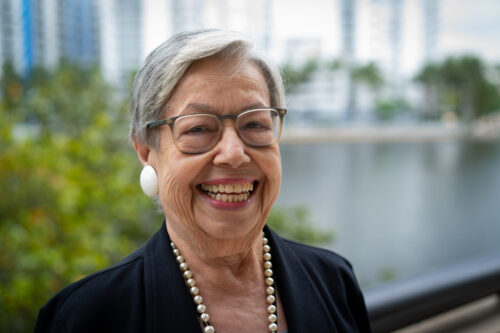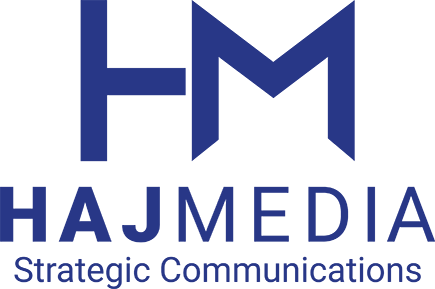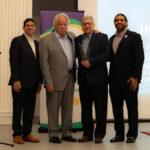Five Questions (5Q) With…

Rosa Castro Feinberg, Ph.D.
Dr. Castro Feinberg is a 10-year member of the School Board of Miami-Dade County and first Latina woman elected countywide. She is co-chair of the Government and Media Relations Committee for LULAC Florida, moderator for the Sunshine State TESOL Advocacy Mailing list and creator of esolflorida.org.
She has been a middle and high school ESOL and Spanish teacher, faculty member for the University of Miami and Florida International University, author and editor of several books and scholarly articles, expert witness for public interest law firms, and consultant to state and federal agencies.
For Dr. Castro Feinberg’s full bio, click here.
1. When did you know you wanted to be an educator?
My childhood career goals evolved from humane lion tamer to righter of wrongs, Lone Ranger/Wonder Woman style. By the time I got to high school I had settled on a career in law; however, I went to Florida State University on a teacher’s scholarship. I planned to teach a few years as a debate coach and then go on to law school. It was not until I was assigned my first group of Cuban refugee children that I realized I really did want to be a teacher. The education of language and other minority children became the focus of my career and of my publications and volunteer work subsequent to retirement.
2. How do you see education changing/evolving in the next decade?
Over the course of the next 10 years I expect to see:
–An expansion of Community Partnership Schools with wraparound services, including Adult and Technical Education Programs;
–Extended school days and year-round school utilization, and an increased number of schools with four-day school weeks in synch with industries that have already adopted this schedule modification;
–Greater parent and community involvement in all facets of the schools’ operations;
–Augmented meal distribution to students and community members in need;
–Sufficient library, guidance, social work and health providers in every school;
–The elimination of high-stakes testing and the restoration of a limited number of a diagnostic and achievement tests;
–A return to a balanced curriculum that includes the full range of electives, including opportunities for students to acquire proficiency in multiple languages;
–Expansion of dual enrollment and early college opportunities;
–Greater attention to preparing all students with life and workplace skills for careers not yet imagined;
–Expansion of high quality, developmentally appropriate, pre-kindergarten programs in the public schools; and
–More parents and educators running for office to support the trends listed above.
3. Best advice you were ever given?
“Wage peace, not war,” Dr. Roger Nichols, Deputy Commissioner of Education, Florida Department of Education, c. 1980.
“Establish a relationship with the Leadership Conference on Civil and Human Rights,” Luis Torres, former Education Director, LULAC National, c. 2017.
Also useful advice: Mae West’s assertion that she’d rather be looked over than overlooked.
4. It is early, but how do you think COVID-19 will change the world of education?
As a result of school closures caused by the pandemic, parents have a greater understanding of, and appreciation for, the work of teachers and school support staff. The public at large has a greater understanding of the importance of public schools and their multiple contributions to the well-being and economic success of each community.
There’s general agreement that important health policy decisions need to be based on accurate data. The same reasoning will lead to making additional and easily accessible data available to parents, teachers and policymakers to inform their decisions about individual students and about education policy.
While the public appreciates the heroic efforts of teachers to make distance learning work, it’s obvious that screen time is a frail substitute for real school time. School leaders have already started working on plans to overcome the learning loss that has occurred during the period of school closure.
Disenchantment with technology doesn’t mean we won’t need to resort to it again or that it can’t serve as a valuable supplement to school-based instruction. School and community leaders working together will devise the means to erase the digital divide before another emergency requires another round of remote learning. A remedy is also needed in preparation for the summer session which will likely include remote learning as well as staggered schedules to permit social distancing. It’s not enough to have Wi-Fi and devices available. A mechanism for paying fees to access Wi-Fi for low income families is needed. A way to prepare parents to help their children turn on their laptops and access the right programs is needed, too, especially for parents of younger students, students with disabilities and English learners. Technology does provide tools to facilitate communication between English speaking teachers and parents who speak other languages. The use of those tools will increase and the children will benefit as a result.
The pandemic has caused both students and teachers grief, anger, confusion and disorientation at the loss of normal routines. These feelings must be dealt with; therefore, guidance, counseling and mental health services will become more widely available to prevent, rather than merely respond to, crisis situations.
5. What advice do you have for aspiring educators and education advocates/leaders?
Know your subject, your students and your community. Whether you advocate for your students or for educational policy changes, your credibility will be based on your expertise. Develop your competence and know your facts, then speak out with confidence.
Bonus Question: What is a fun fact about you that people would be surprised to know?
I arranged a behind-the-scenes zoo tour as part of a celebration for a friend’s birthday. As part of that experience, I got to hand-feed a very long banana leaf to a full-grown rhinoceros at Zoo Miami. This was a peak experience and the closest I ever got to my original career goal of humane lion tamer.





